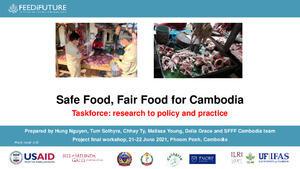Challenge
Effective plant health management is critical for improving the productivity, profitability, sustainability and resilience of agrifood systems. Yet, farming communities, especially in low- and middle-income countries, continue to struggle against plant pests and diseases. Each year, these threats cause 10–40% losses to major food crops, costing the global economy US$220 billion. Recent analyses show that the highest losses due to pests and diseases are associated with food-deficit regions with fast-growing populations.
Increasing trade and travel, coupled with weak phytosanitary systems, are accelerating the global spread of devastating pests and diseases. The situation is exacerbated by climate change, driving the emergence of new threats. These burdens fall disproportionately on women and poorly resourced communities.
Diagnostic capacity, global-scale surveillance data, risk forecasting and rapid response and management systems for major pests and diseases are still lacking. Inadequate knowledge and access to climate-smart control options often leave smallholders and marginalized communities poorly equipped to respond to biotic threats. Environmental effects of toxic pesticides, mycotoxin exposure and acute unintentional pesticide poisoning are major concerns globally.
Objective
This Initiative aims to protect agriculture-based economies of low- and middle-income countries in Africa, Asia and Latin America from devastating pest incursions and disease outbreaks, by leveraging and building viable networks across an array of national, regional and global institutions.












